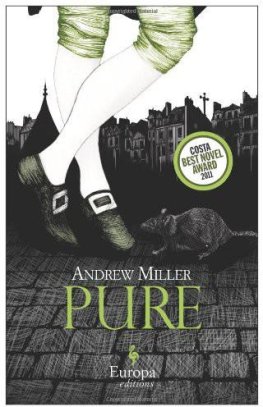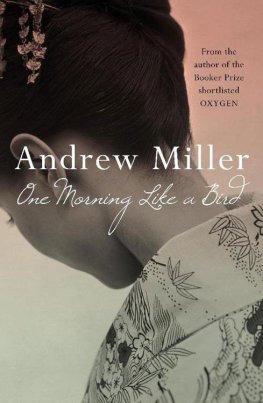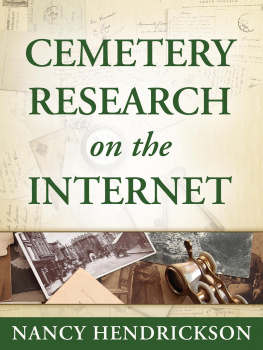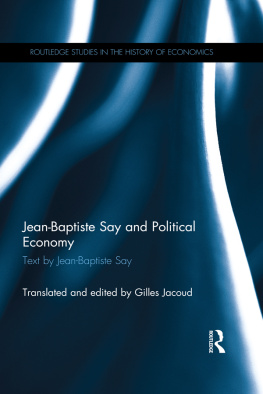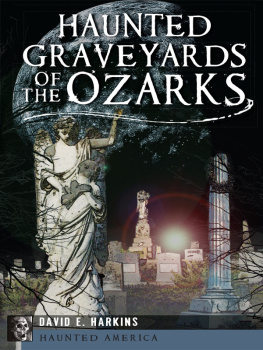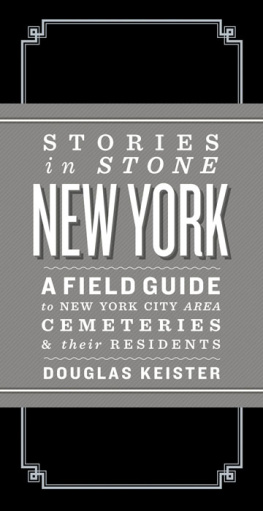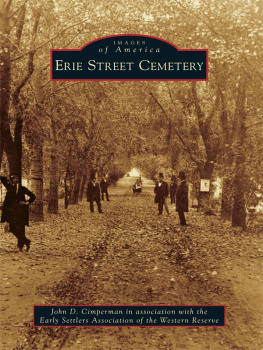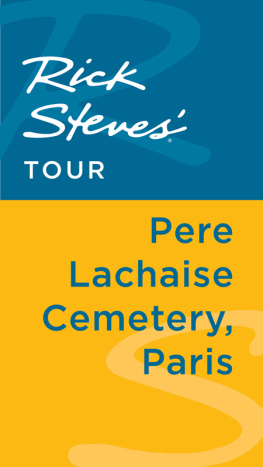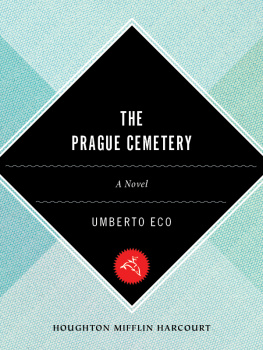Andrew Miller - Pure
Here you can read online Andrew Miller - Pure full text of the book (entire story) in english for free. Download pdf and epub, get meaning, cover and reviews about this ebook. year: 2012, publisher: Sceptre, genre: Prose. Description of the work, (preface) as well as reviews are available. Best literature library LitArk.com created for fans of good reading and offers a wide selection of genres:
Romance novel
Science fiction
Adventure
Detective
Science
History
Home and family
Prose
Art
Politics
Computer
Non-fiction
Religion
Business
Children
Humor
Choose a favorite category and find really read worthwhile books. Enjoy immersion in the world of imagination, feel the emotions of the characters or learn something new for yourself, make an fascinating discovery.
- Book:Pure
- Author:
- Publisher:Sceptre
- Genre:
- Year:2012
- Rating:3 / 5
- Favourites:Add to favourites
- Your mark:
- 60
- 1
- 2
- 3
- 4
- 5
Pure: summary, description and annotation
We offer to read an annotation, description, summary or preface (depends on what the author of the book "Pure" wrote himself). If you haven't found the necessary information about the book — write in the comments, we will try to find it.
Pure — read online for free the complete book (whole text) full work
Below is the text of the book, divided by pages. System saving the place of the last page read, allows you to conveniently read the book "Pure" online for free, without having to search again every time where you left off. Put a bookmark, and you can go to the page where you finished reading at any time.
Font size:
Interval:
Bookmark:
Andrew Miller
Pure
In memory of my father, Dr Keith Miller,
and of my friends, Patrick Warren and George Lachlan Brown.
FIRST
The time will come when the sun will shine only on free men who have no master but their reason.
Marquis de Condorcet1
A young man, young but not very young, sits in an anteroom somewhere, some wing or other, in the Palace of Versailles. He is waiting. He has been waiting a long time.
There is no fire in the room, though it is the third week in October and cold as Candlemas. His legs and back are stiffening from it the cold and three days of travelling through it, first with Cousin Andr from Bellme to Nogent, then the coach, overfull with raw-faced people in winter coats, baskets on their laps, parcels under their feet, some travelling with dogs, one old man with a cockerel under his coat. Thirty hours to Paris and the rue aux Ours, where they climbed down onto cobbles and horseshit, and shifted about outside the hauliers office as if unsure of their legs. Then this morning, coming from the lodgings he had taken on the rue the rue what? an early start on a hired nag to reach Versailles and this, a day that may be the most important of his life, or may be nothing.
He is not alone in the room. A man of about forty is sitting opposite him in a narrow armchair, his surtout buttoned to his chin, his eyes shut, his hands crossed in his lap, a large and rather antique-looking ring on one finger. Now and then he sighs, but is otherwise perfectly silent.
Behind this sleeper, and to either side of him, there are mirrors rising from the parquet to the cobwebbed mouldings of the ceiling. The palace is full of mirrors. Living here, it must be impossible not to meet yourself a hundred times a day, every corridor a source of vanity and doubt. The mirrors ahead of him, their surfaces hazed with dust (some idle finger has sketched a mans bulbous cock and next to it a flower that may be a rose), give out a greenish light as if the whole building were sunk, drowned. And there, part of the wreck, his own brown-garbed form, his face in the mottled glass insufficiently carried to be descriptive or particular. A pale oval on a folded body, a body in a brown suit, the suit a gift from his father, its cloth cut by Gontaut, who people like to say is the best tailor in Bellme but who, in truth, is the only tailor, Bellme being the sort of place where a good suit is passed down among a mans valuables along with the brass bed-warmer, the plough and harrow, the riding tack. Its a little tight across his shoulders, a little full in the skirts, a little heavy at the cuffs, but all of it honestly done and after its fashion perfectly correct.
He presses his thighs, presses the bones of his knees, then reaches down to rub something off the ankle of his left stocking. He has been careful to keep them as clean as possible, but leaving in the dark, moving through streets he did not know, no lamps burning at such an hour, who can say what he might have stepped in? He scrapes at it with the edge of his thumb. Mud? Hopefully. He does not sniff his thumb to enquire.
A small dog makes its entrance. Its claws skitter on the floor. It looks at him, briefly, through large occluded eyes, then goes to the vase, the tall, gilded amphora displayed or abandoned in one of the rooms mirrored angles. It sniffs, cocks its leg. A voice elderly, female coos to it from the corridor. A shadow passes the open door; the sound of silk hems brushing over the floor is like the onset of rain. The dog bustles after her, its water snaking from the vase towards the crossed heels of the sleeping man. The younger man watches it, the way it navigates across the uneven surface of the parquet, the way even a dogs piss is subject to unalterable physical laws. .
He is still watching it (on this day that may be the most important of his life, or nothing at all) when the door of the ministers office opens with a snap like the breaking of those seals they put on the doors of infected houses. A figure, a servant or secretary, angular, yellow-eyed, signals to him with a slight raising of his chin. He gets to his feet. The older man has opened his eyes. They have not spoken, do not know each others names, have merely shared three cold hours of an October morning. The older man smiles. It is the most resigned, most elegant expression in the world; a smile that appears like the flower of vast, profitless learning. The younger man nods to him, then slips, quickly, through the half-open door of the office for fear it might shut on him again, suddenly and for ever.
2
St Augustine, says the minister, holding between two fingers a part-devoured macaroon, informs us that the honours due to the dead were intended, principally, to console the living. Only prayer was effective. Where the corpse was buried was irrelevant. He returns to the macaroon, dips it in a glass of white wine, sucks at it. Some crumbs fall onto the papers piled on his immense desk. The servant, standing behind his masters chair, looks at the crumbs with a kind of professional sorrow but makes no attempt to remove them.
He was an African, says the minister. St Augustine. He must have seen lions, elephants. Have you seen an elephant?
No, my lord.
There is one here. Somewhere. A great, melancholy beast that lives on Burgundy wine. A gift from the king of Siam. When it arrived in the time of His Majestys grandfather, every dog in the palace hid for a month. Then they grew used to it, began to bark at it, to bait it. Had it not been hidden away, perhaps they would have killed it. Fifty of them might have managed. He glances across the desk at the young man, pauses a moment as though the elephant and the dogs might also be figures in a parable. Where was I? he asks.
St Augustine? says the young man.
The minister nods. It was the medieval Church that began the practice of burying inside churches, in order, of course, to be near the relics of the saints. When a church was full, they buried them in the ground about. Honorius of Autun calls the cemetery a holy dormitory, the bosom of the Church, the ecclesiae gremium. At what point do you think they started to outnumber us?
Who, my lord?
The dead.
I dont know, my lord.
Early, I think. Early. The minister finishes his macaroon. The servant passes him a cloth. The minister wipes his fingers, puts on a pair of round-rimmed spectacles and reads the sheet of manuscript on the top of the pile in front of him. The room is warmer than the anteroom, but only by a very little. A small fire crackles and occasionally leans a feather of smoke into the room. Other than the desk there is not much in the way of furniture. A small portrait of the king. Another painting that seems to depict the last moments of a boar hunt. A table with a decanter and glasses on it. A heavy porcelain chamber pot by the fireplace. An umbrella of oiled silk propped under the window. Through the window itself, nothing but the ruffled grey belly of the sky.
Lestingois, says the minister, reading from the paper. You are Jean-Marie Lestingois.
No, my lord.
No? The minister looks back at the pile, draws out a second sheet of paper. Baratte, then. Jean-Baptiste Baratte?
Yes, my lord.
An old family?
My fathers family have been in the town, in Bellme, for several generations.
And your father is a glover.
A master glover, my lord. And we have some land. A little over four hectares.
Four? The minister allows himself a smile. Some powder from his wig has whitened the silk on his shoulders. His face, thinks Jean-Baptiste, if it were continued outwards a little, would come to an edge, like the blade of an axe. The Comte de S says you are hard-working, diligent, of clean habits. Also that your mother is a Protestant.
Font size:
Interval:
Bookmark:
Similar books «Pure»
Look at similar books to Pure. We have selected literature similar in name and meaning in the hope of providing readers with more options to find new, interesting, not yet read works.
Discussion, reviews of the book Pure and just readers' own opinions. Leave your comments, write what you think about the work, its meaning or the main characters. Specify what exactly you liked and what you didn't like, and why you think so.

